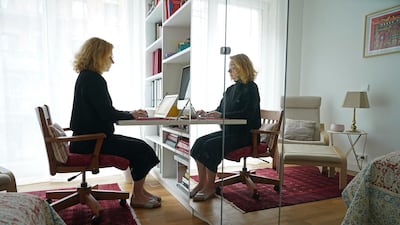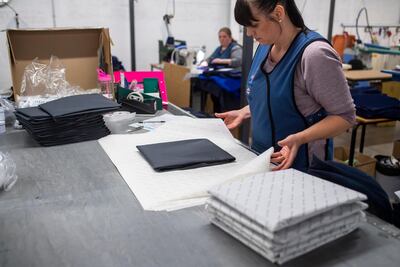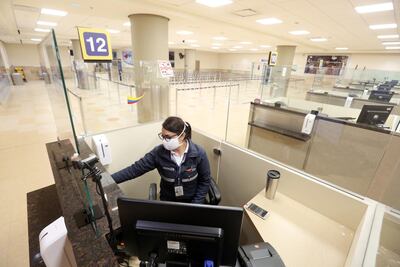In the early weeks of the Covid-19 pandemic, observers said that although the physical toll of the virus on men is higher, women would suffer more social and economic devastation. More than nine months into the global crisis, we see that their fears were well founded when it comes to women’s careers.
In September, as remote learning resumed for American schoolchildren, approximately 865,000 women dropped out of the US labour force, almost exactly four times the number of men who did the same.
The latest Women in the Workplace report from McKinsey suggests that women's labour force participation will get worse: More than one in four women are considering either leaving the workforce or downscaling their careers.
This consideration is reasonable and best understood in the context of the systemic web of challenges women face in their careers. This includes their treatment in and by organisations in terms of norms and practices, as well as a stubborn pay gap.
The situation is further complicated by broader societal norms that both describe and prescribe how women disproportionately manage the domestic space and provide unpaid labour at home.
In a recent webinar, Insead’s Jennifer Petriglieri explained how the lack of flexibility for parents of young children, coupled with the societal expectation that mothers should be primary caregivers, often places women in an impossible situation.
While respecting the choices of parents exiting the workforce or downscaling careers when in these impossible situations, as organisational leaders and as members of society, we must stem the tide of women fleeing the workforce during Covid-19 and push for the return of female talent to leadership. This will enable a robust economic recovery and a fairer world.
Building balance in the office
The status quo of gender disparities need not be maintained or exacerbated. Highlighting the need to stay focused on gender balance during the crisis, Achal Agarwal, chief strategy and transformation officer of Kimberly-Clark, said: “Covid-19 has changed several things but gender diversity continues to be a top priority. With ‘work at home’, it has become even more critical to think about ways to support and sponsor women since there are further pressures on them because of closure of schools and other pressures at home. Those organisations which continue to work aggressively on gender diversity will emerge stronger after Covid-19.”
Aligned with this optimism, Insead alumni expressed their commitment to increasing gender balance during this disrupted time.
In a survey designed by Insead researchers, 69 per cent of respondents indicated they were spending at least a moderate amount of time on maintaining and building gender balance.
Notably, men and women respondents contributed similarly to gender balance efforts in their organisations, which is encouraging given the necessity of support from both groups of leaders.
The survey also found that responders who saw themselves as social impact leaders, committed to bringing about a better world, contributed more to gender balance during Covid-19.
Many leaders are focused on what can be done to leverage the disruption to build more inclusive businesses during and after the pandemic, and a webinar held in October by the Insead Gender Initiative and Abu Dhabi Global Markets highlighted this.
At this webinar – on the policies and practices shaping organisational culture in a gender-positive manner – the speakers and many of the over 800 viewers emphasised the need to plan for a post-Covid or possibly a Covid-normal world, with a well-defined diversity, equity and inclusion strategy and firm targets.
“Boards and companies that do not accelerate their diversity and inclusion initiatives are placing themselves at a disadvantage by limiting their access to talent, diversity of thought and innovativeness," said Diana Wilde, co-founder of the Pathway20 Initiative by Aurora50, a social enterprise working towards 20 per cent female presence for boards in the UAE. "To develop the most effective boards of the future, we need to consider how our actions today will impact the talent pipeline of tomorrow.”
In a crisis, longer-term thinking can prove elusive, but its importance is clear. We advise leaders to build their post-pandemic strategy now.
As vaccines take effect and Covid-19 gradually recedes next year, organisations should be ready to receive women who were retrenched or left the workforce in 2020. As Zoe Kinias and Henriane Mourgue d'Algue wrote in The National, returner programmes have a high success rate when they follow established best practices. They will likely also prove effective for winning a post-Covid-19 war for talent.
Dividing labour at home
The home lives of women, especially during the pandemic, have a significant effect on their career decisions. Persistent cross-societal norms of women contributing more than men at home, a surge in required domestic labour and blurred work-life boundaries create tensions between domestic and career demands.
This increases the danger that families will fall back to default arrangements where women disproportionately or exclusively carry the extra domestic weight.
Before the pandemic, this resulted in the 'second shift' that filled many women's non-work hours with childcare and housework responsibilities. Covid-19 has destroyed the boundary between the first and second shift, creating an even worse predicament for dual-career couples and parents, often especially working mothers.
They now have to manage their own careers, lead teams through this disruption, while also guiding their children through remote learning and coping with more domestic chores – with everyone at home and only limited external support.
In worst-case scenarios, it is an unsustainable burden for any one person. Thus, as the efforts of both men and women towards maintaining and developing gender balance are crucial in the workplace, the same is true at home.
At this exceptional moment in history, each dual-career couple must find its way to navigate the disruption without making potentially serious career decisions that are based on short-sighted conflict avoidance.
In her book Couples That Work, Jennifer Petriglieri urges dual-career couples to create a contract to help them through challenging periods of transition (such as the pandemic). She says, this should cover three close-to-the-bone issues: values (What matters most to you?), boundaries (What would you never want to do?) and fears (as opposed to phobias).
In a Covid-themed Harvard Business Review article, Ms Petriglieri invites couples to align during the pandemic by formulating a "crisis deal" setting out their shared priorities, intentions and needs from one another.
These deep, meaningful conversations can help couples find creative solutions for long-term fulfilment.
For example, a common fear that may surface for traditional fathers is not being there for their children due to work obligations.
A natural next step in the dialogue is to explore ways for both partners to find a more equitable balance of parenting and career.
For women, revealing ultimate professional aspirations beyond the pandemic may prompt a larger discussion about how those aspirations can be sustained in the remaining months before the vaccine is available to us all.
With Covid-19 threatening to erase years, if not decades, of slow progress towards gender balance, dedication and commitment of thoughtful effort both at home and at work can ameliorate the potential devastation.
Zoe Kinias is an associate professor of Organisational Behaviour at Insead and the academic director of Insead’s Gender Initiative
Vinika D Rao is executive director of the Insead Emerging Markets Institute and the Insead Gender Initiative




